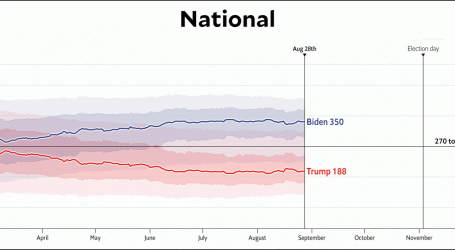Ohio Law Requires a Transgender Man to Use His Deadname on State Legislature Ballot
COLUMBUS, UNITED STATES – 2021/06/24: Cole Ramsey, 39, of South Linden holds a Transgender Pride Flag in front of the Ohio Statehouse to protest the passing of legislation against Trans Women playing sports in high school and college on June 24, 2021.Stephen Zenner/SOPA Images/LightRocket via Getty Images
Fight disinformation: Sign up for the free Mother Jones Daily newsletter and follow the news that matters.A Democratic candidate for the Ohio Senate is a transgender man who has long gone by the name Ari Faber, but a 1995 law will require the state’s upcoming March primary ballots to use the name he was given at birth: Iva Faber.
Title 35, Section 3513.271 of Ohio Revised Code requires that “[i]f any person desiring to become a candidate for public office has had a change of name within five years immediately preceding the filing of his statement of candidacy, both his statement of candidacy and nominating petition must contain, immediately following the person’s present name, the person’s former names.”
Additionally, the statute says, people who are “elected under the person’s changed name, without submission of the person’s former name, shall be immediately suspended from the office and the office declared vacated.”
According to the New York Times, which published a feature story on Faber and the Ohio law on Saturday morning, the law originated to prevent candidates from deceiving voters. There is an exception to the law for candidates who changed their names through marriage.
Faber, who is running for a state senate seat in southeast Ohio and has not legally changed his name, told the Times he is “concerned that supporters might be confused when they see my deadname on the ballot.”
He’s not the only candidate who has been impacted. The Times reports that another candidate, a transgender women named Vanessa Joy, was disqualified from running as a Democrat for a statehouse seat in northeast Ohio because she allegedly did not include her previous name on election forms. At least two other transgender candidates faced challenges as a result of ballot name issues. In one case, a local board of elections dismissed the challenge because a Republican, not a Democratic voter, levied it. In the other case, the board of elections said the candidate had not misled voters by using her chosen name.
But even for the candidates who have so far been able to continue their campaigns, there are concerns that transphobic people won’t stop trying to invoke the 1995 law to prevent them from taking office.
“Given the nature of politics in the state of Ohio,” one of the candidates told the Times, “I would argue that it’s almost guaranteed that if we were to win, they would attempt to refuse to seat us.”





